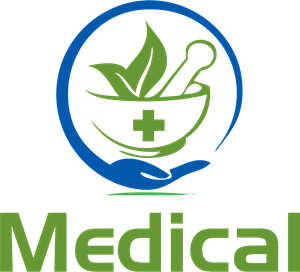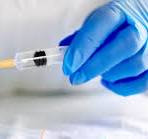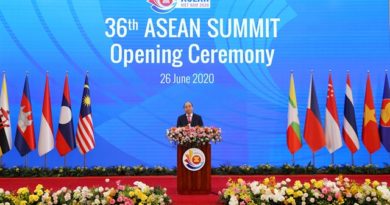WORLD IMMUNIZATION WEEK-April 24 to 30 | Humanly Possible: Saving lives through immunization-WHO
Emphasizes vaccine importance-

The minister explained that
.
.
World Immunization Week 2024 – 24 to 30 April (Humanly Possible: Saving lives through immunization)


World Immunization Week is a global public health campaign to raise awareness and increase coverage of immunization against vaccine-preventable diseases around the world. It takes place each year during the last week of April.
Immunization is a global public health and development success story, saving 3.5-5 million lives every year. We now have vaccines to prevent more than 20 life-threatening diseases, helping people of all ages live longer, healthier lives.
The COVID-19 pandemic, associated disruptions, and COVID-19 vaccination efforts strained health systems in 2020 and 2021. However, from a global perspective recovery is on the horizon – in 2022 diphtheria-pertussis-tetanus (DTP) immunization coverage, albeit unevenly between countries, has almost recovered to 2019 levels.
Measles, because of its high transmissibility, acts as a “canary in the coalmine”, quickly exposing any immunity gaps in the population. Still, globally 22 million children missed their routine first dose of measles vaccine in 2022, compared to 19 million in 2019.
According to WHO/UNICEF estimates of national immunization coverage for 2022, a significant progress has been made in the WHO South-East Asia Region. The coverage rate for DPT3, the third dose of diphtheria, pertussis, and tetanus vaccines, has rebounded to pre-pandemic levels at 91%, marking a sharp increase from the 82% recorded in 2021. Additionally, there has been a noteworthy 6% improvement in the coverage of measles-containing vaccines, rising from 86% in 2021 to 92% in 2022.
.
According to the WHO/UNICEF estimates for Sri Lanka, the coverage of vaccination has been almost 99% for the past decade (2011-2022). As a result of all these efforts, Sri Lanka achieved the elimination status for Polio (2014), maternal and neonatal tetanus (2016), measles (2019) and congenital rubella (2020).
In order to deliver universal access to immunization, at the 65th World Health Assembly held in 2012, Ministers of Health from 194 countries endorsed the Global Vaccine Action Plan (GVAP). The GVAP roadmap aimed to prevent millions of deaths by 2020 through more equitable access to vaccines for people in all communities regardless of where they are born, who they are or where they live.
Drawing on lessons from the past decade and new challenges posed by infectious diseases such as Ebola, COVID-19, the Immunization Agenda 2030 (IA2030) was developed which sets an ambitious, overarching global vision and strategy for vaccines and immunization for the decade 2021–2030. It was co-created with thousands of contributions from countries and organizations around the world. The strategy has been designed to respond to the interests of every country and intends to inspire and align the activities of community, national, regional and global stakeholders towards achieving a world where everyone, everywhere fully benefits from vaccines for good health and well-being.
In 2021, the WHO Regional Committee for South-East Asia endorsed the “Strategic Framework for the South-East Asia Regional Vaccine Action Plan 2022-2030”, urging Member States to reaffirm their commitment to regional immunization goals and targets as well as IA2030.
.
The Expanded Programme on Immunization (EPI), an initiative launched by the World Health Organization in 1974, stands as a global endeavor to ensure equitable access to life-saving vaccines for every child, regardless of their geographic location or socioeconomic status. Over the past five decades, the EPI has evolved and achieved remarkable milestones that reshaped the global health landscape. At its inception, EPI featured just six vaccines in its portfolio, but today, this number has grown to thirteen, encompassing a spectrum of diseases including the recent addition of COVID-19 vaccines.
The timeline of EPI is marked by several key milestones. Among these accomplishments, the eradication of smallpox in 1980 stands as a monumental triumph in the history of immunization. The global expansion of childhood vaccination programmes and the establishment of a robust vaccine supply chain were equally critical, allowing vaccines to reach even the most remote areas and endure extreme temperature conditions. This programme, which is now commonly referred to as the Essential Programme on Immunization, seeks to safeguard individuals of all ages through comprehensive immunization efforts. Today, every country has a national immunization programme, and vaccines are universally recognized as among the safest, most cost-effective, and successful public health interventions to prevent fatalities and enhance the quality of life.
.
EPI in Sri Lanka was initiated in 1978. This has been a major public health intervention that has been conducted by Ministry of Health to protect the rights of the child by administration of WHO pre-qualified vaccines. Initially the EPI program used BCG at birth, DPT and Oral Polio vaccines for immunization. Later significant inclusions have been made to the schedule of vaccinations. The introduction of new vaccines, such as pneumococcal vaccine, is considered by the use of findings of a burden study to be conducted in the near future. WHO has supported the vaccination program in Sri Lanka by conducting annual EPI reviews for the entire country which helped to identify gaps at all levels including at the grass root level. In addition, AEFI (Adverse Events Following Immunizations) casualty assessments have been conducted for all major adverse events of vaccines through WHO support. WHO also jointly with UNICEF and other partners supported the Ministry of Health in Supplementary Immunization activity for measles outbreak in January 2024.
WHO is committed to give the fullest support to combat any possible outbreaks due to vaccine-preventable diseases and sustain the high immunization coverage in Sri Lanka.

@[email protected]
https://www.who.int/publications/m/item/immunization-sri-lanka-2023-country-profile
Immunization handbook Sri Lanka
Epidemiology Unit web site

 Memento Maxima Digital Marketing
Memento Maxima Digital Marketing






